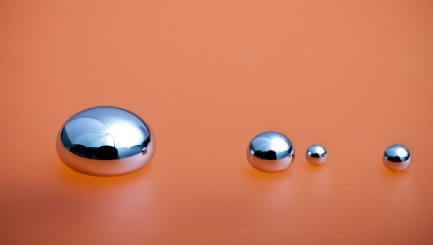Ayurveda Could Face Mercury Ban According To Study
 Ancient Ayurvedic treatments have been used for centuries, but this medicinal system could be under threat is a global ban on the trade of mercury is imposed. The inorganic form and the sulphides of mercury, which have proven to be harmless, have been used in Ayurvedic applications for many years. Using mercury as a viable form of treatment could be put to a stop though, if the proposed ban is put in place, which could affect more than 140 countries due to the environmental risks that it poses.
Ancient Ayurvedic treatments have been used for centuries, but this medicinal system could be under threat is a global ban on the trade of mercury is imposed. The inorganic form and the sulphides of mercury, which have proven to be harmless, have been used in Ayurvedic applications for many years. Using mercury as a viable form of treatment could be put to a stop though, if the proposed ban is put in place, which could affect more than 140 countries due to the environmental risks that it poses.
Rasaoushadhies, or bio-mineral formulations, result in Ayurvedic medicines and often contain mercury as a significant ingredient. It is never used as an organic or elemental form though, only as an inorganic form which is generally sulphide. It is important to note that every mineral or metal used in rasa shastra as a medicine is always in its inorganic compound form. While the ministry of health and family welfare has appealed to the ministry of environment and forest to encourage the ban on mercury, the matter has been raised with the World Ayurveda Congress in the hope that it can remain a key element of this ancient practice.
A method known only to India, the purification and calcination of mercury as a way of making it harmless for use in medicinal practices is the result of eight processes. Western medicine does not use mercury, as even though the medicinal properties were discovered way back in the 19th century, the organic and chloride forms were always used which proved to do more harm than good in patients. In addition to the health reasons behind the proposed ban, the unavailability of mercury also poses a problem. Using mercury for medical uses could lead to a global loss, which would cause a problem worldwide.

Comments are closed.